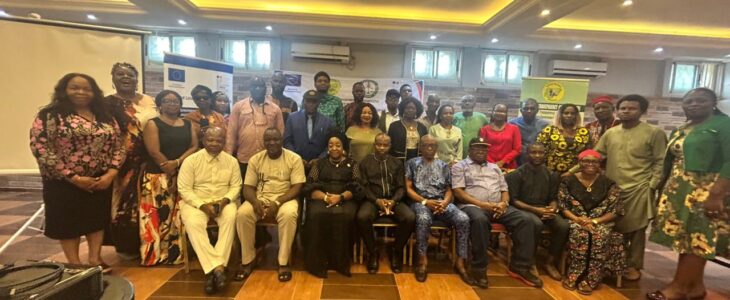
By Uzo Ugwunze

Solicitor General of Anambra state, Bar Ngozi Iwuno has called for inclusion of freedom of Information (FOI) Act in civic education curricula as part of solutions to the implementation of the Act.
She also stressed the need to prioritize the FOI Act in courts as well as issuance of sanctions for wrongful denials.

Iwuno spoke in Awka at the South-South Regional Roundtable on the FOI Act in Nigeria, Themed: “14 Years of FOI Implementation at the Sub-National Levels in Nigeria: Strengthening Access, Accountability, and Citizen Engagement”
She also canvassed for institutionalization of FOI compliance across all levels of government.
According to her, when legal remedies were swift and decisive, they could serve as deterrents to non-compliance.
She also underscored the importance of public education, technology as well as need to leverage digital platforms to facilitate proactive disclosure.
“We need to make the FOI Act part of civic education curricula. Our citizens must understand not only their rights but also how to assert them.
“Imagine if secondary school students understood how to write an FOI request. That’s how we build a future of informed citizens.
“Civil society organizations must continue to act as watchdogs, advocates, and educators. Government and civil society are not adversaries; we are partners in democratic development.
“The courts must prioritize FOI cases and issue sanctions for wrongful denials. When legal remedies are swift and decisive, they serve as a deterrent to non-compliance.”
The Solicitor General however identified culture of secrecy in public service and capacity gaps as major challenges hindering full implementation of FOI Act, especially at the sub-national level.
She also listed judicial enforcement and lack of adequate digital infrastructure for proper record-keeping and information dissemination in many Ministries, Department and Agencies as impediments to FOIA implementation.
While commending stakeholders for their dedication to transparency and good governance, Iwuno urged them to keep the flame of accountability burning.
She also enjoined public servants not to view FOIA as an enemy, but a shield that not only protects them from the erosion of trust, but forces them to do their jobs better as well as offer them opportunity to serve with integrity.
Earlier, Executive Director, Centre for Transparency Advocacy (CTA), Faith Nwadishi lamented difficulty in obtaining clear, timely and complete information from most government agencies, especially at sub-national level and Local Government Areas despite efforts by civil society organizations.
Describing FOI Act as one of the strongest tools in fighting corruption as well as weapon against secrecy and impunity, Nwadishi challenged citizens to lead the transparency struggle as the strongest force that sustains nation’s economy and collective existence.
“This round table is part of a broader effort under the Strengthening Accountability and Governance in Nigeria Initiative (SAGNI)—a 12-month project we are implementing with support from the Rule of Law and Anti-Corruption Programme (RoLAC) and funding from the European Union through International IDEA.
“The project focused on selected federal institutions, departments in the Federal Capital Territory (FCT), Ministries, Departments and Agencies (MDAs) in Anambra and Edo States is aimed at promoting transparency, accountability, and good governance in Nigeria.
“We need the media to continue informing citizens. We need civil society to train and educate citizens on how to use the FOI Act. We also need government officials and institutions to not just comply—but champion transparency.
“And above all, we need citizens to use this right. Access to information is not just a legal provision—it is the heartbeat of democracy. If people don’t know, they cannot act. If they cannot act, they cannot hold power to account.
“And if power is not accountable, democracy suffers. Let us not allow 14 more years to pass before we take this law seriously. Together, let’s ensure the FOI Act works—for all Nigerians as we urge all the states in the South-East region to implement the FoI Act.”
